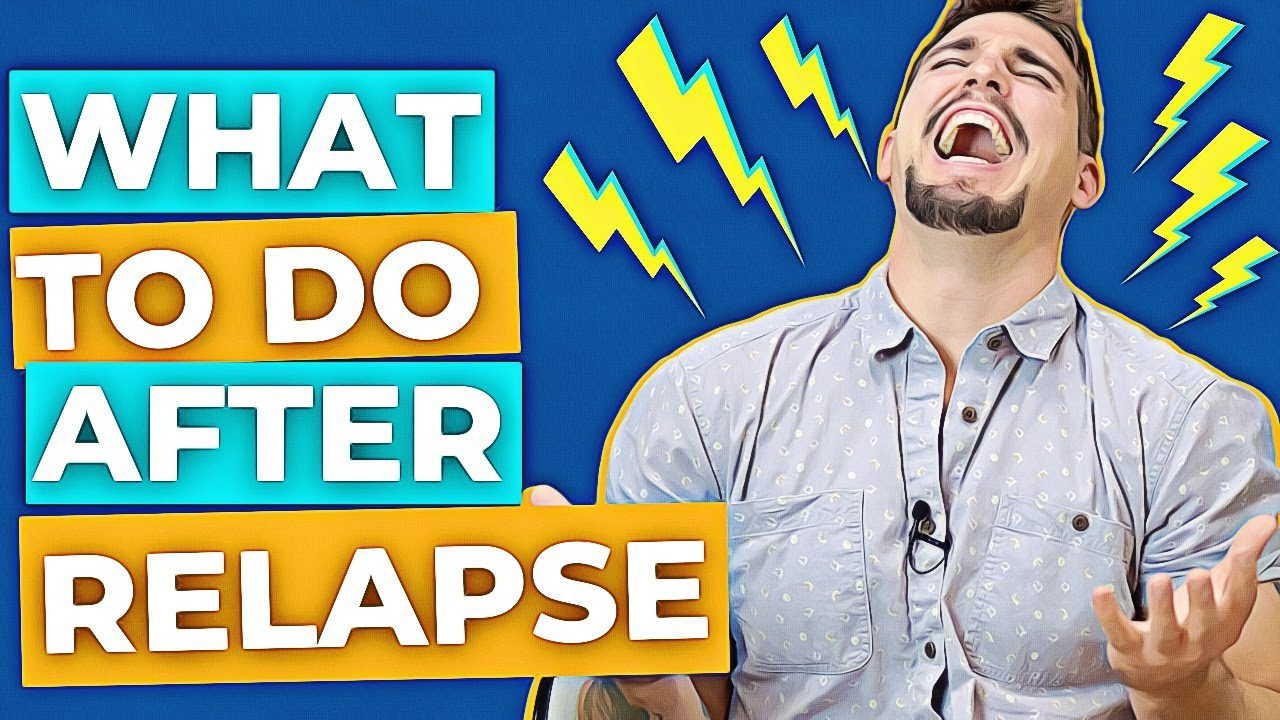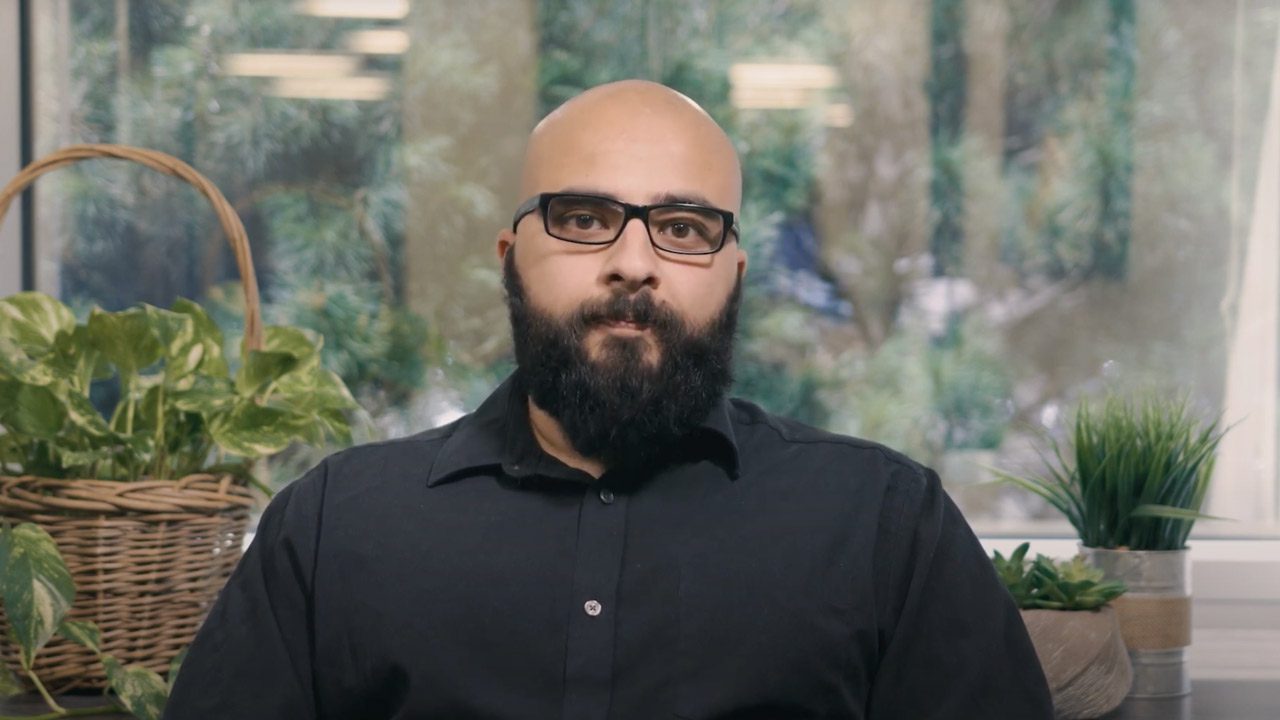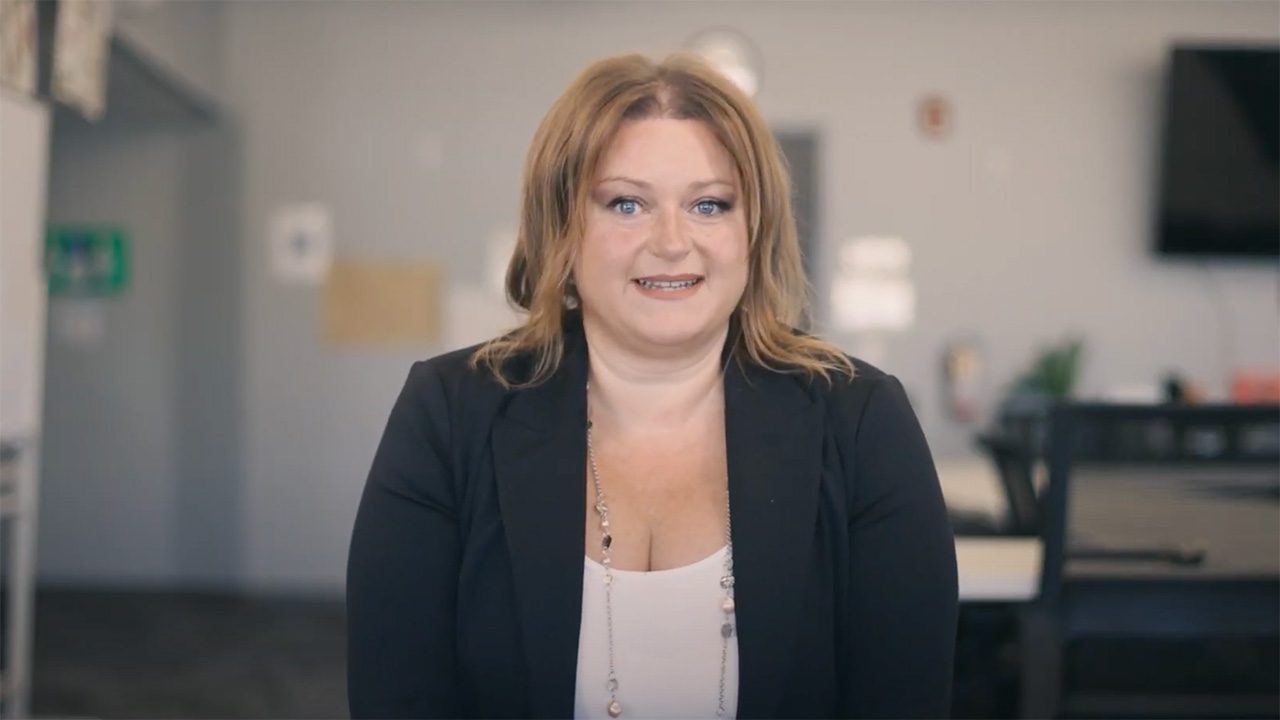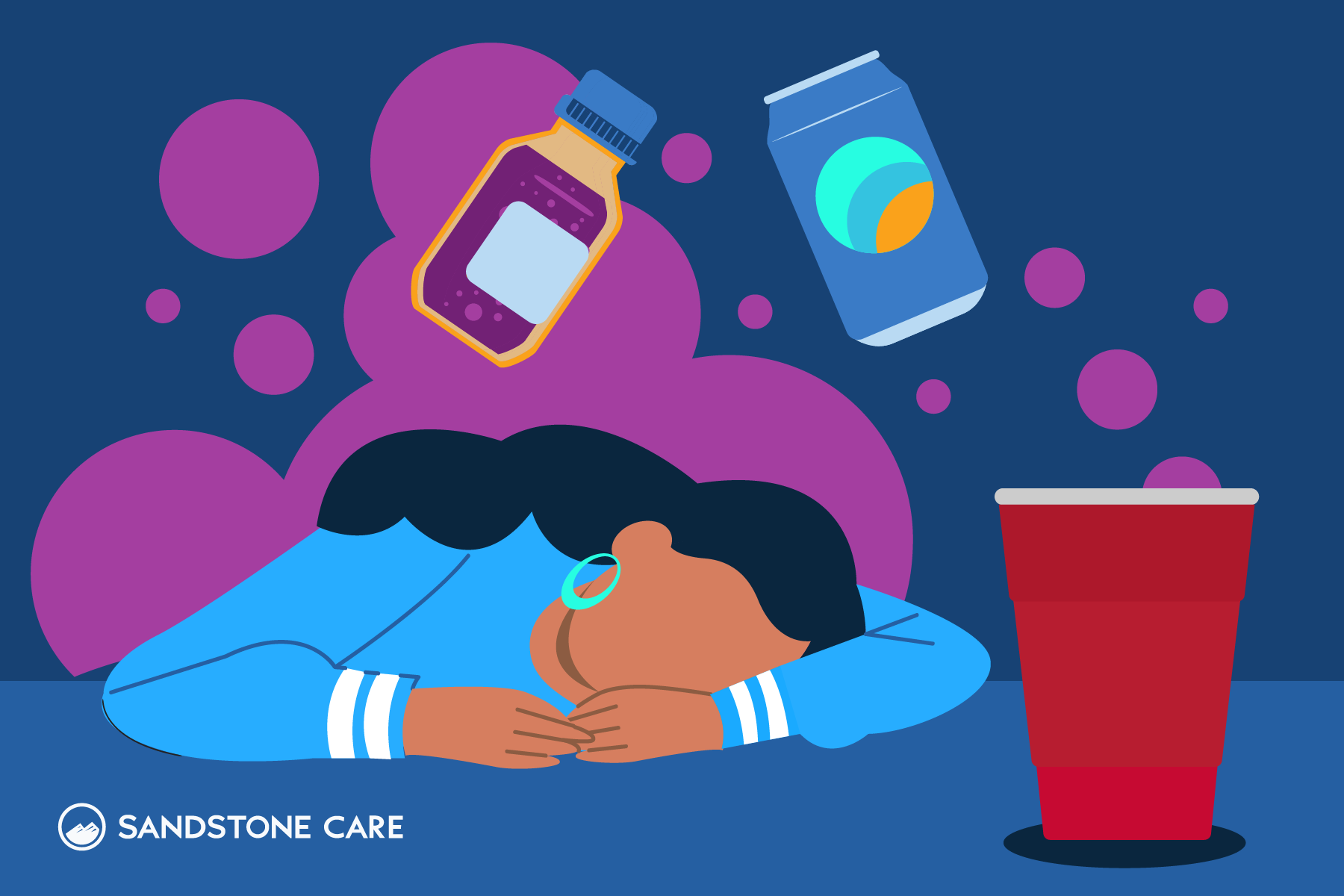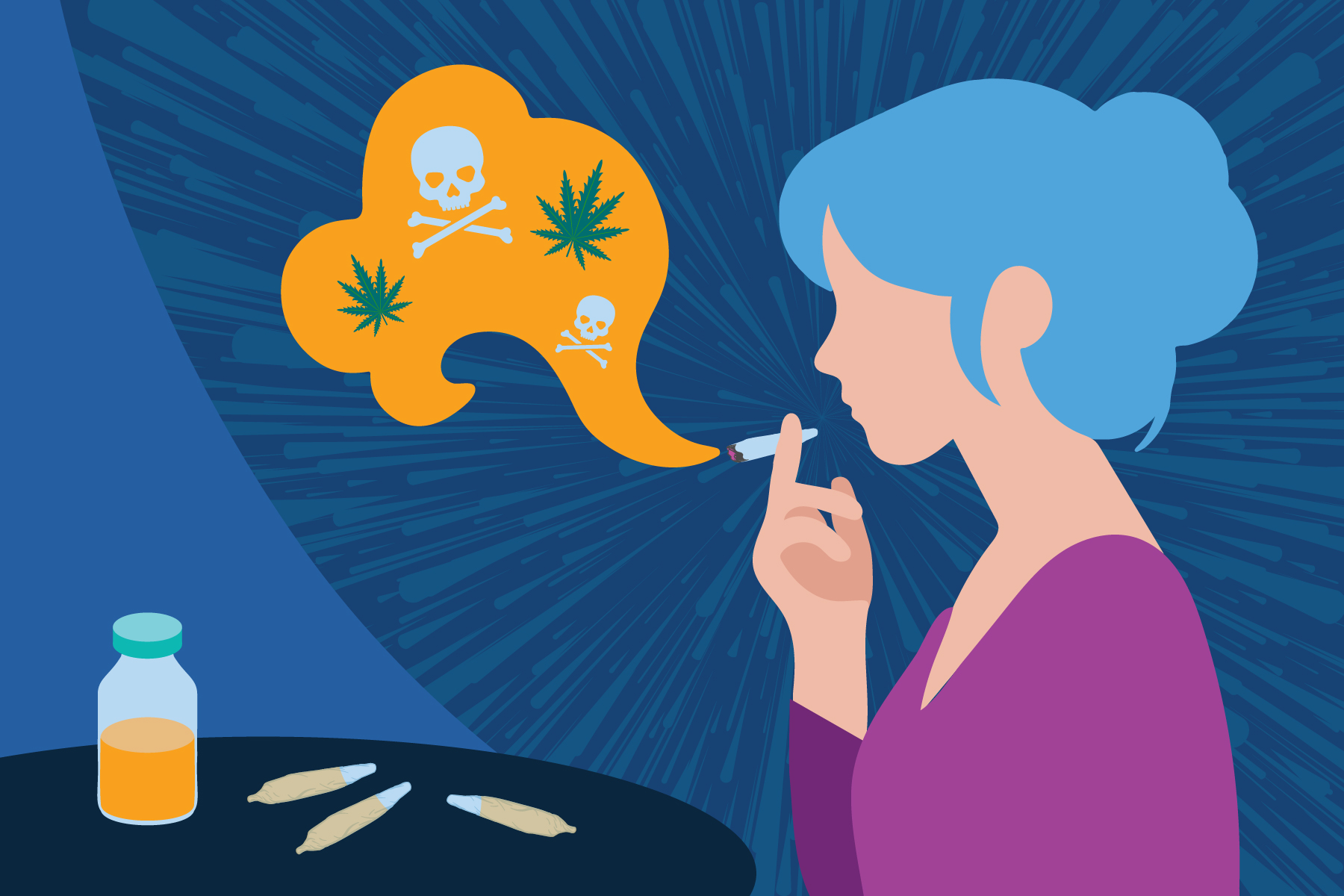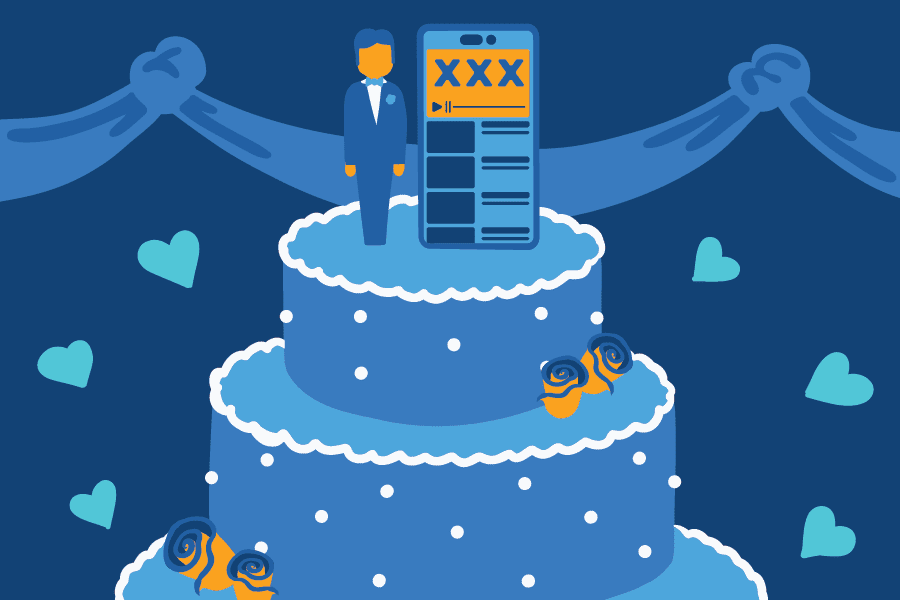How Do You Get Back On Track After A Relapse?
After a relapse, you can get back on track by realizing that relapsing is just a setback in your addiction recovery.
You might feel like you failed after a relapse. You might feel like you let your loved ones down. You might struggle to get back on track because you feel that relapsing means that recovery and sobriety are not meant for you.
You might feel hopeless after a relapse or that getting better is impossible for you.

Addiction and relapse might make you feel like no one else shares your issues or understands what you are going through. Just like when you first got into treatment, remember that you met others struggling with addiction like you.
To get back on track after an addiction relapse, go easy on yourself. Remember that long-term sobriety is a process and not an end goal. Every long-term process will have setbacks along the way.
Addiction recovery is hard, which is why many avoid facing their issues. But you went through the process and faced your challenges. There is no shame in having a setback. Now, you can come back better than before.
Shame and self-blame will not be helpful after a relapse. Admit that a relapse happened and work towards figuring out what caused your relapse.
Life, for better or worse, continues during your addiction recovery process.
Maybe you were doing great, and then an unexpected life event threw you off the right path. You might lose a loved one, lose your job, go through a breakup, or another life event. A natural and unexpected event, like a pandemic or a hurricane, might uproot your entire life.
Sometimes, life is going great for a long time. Sobriety is easy. Then, you get bad news, and suddenly, you feel triggered. You go back to using or drinking as a way to cope with the unexpected. Suddenly, you are right back to where you were before you began recovery.
Other times, you follow all the rules of recovery for a long time, and you feel safe from relapsing.
You have been following your recovery plan for years. You have been sober and drug-free for a long time. You might stop going to support groups or stop making time for self-care. You feel like you are “cured” of your substance use disorder.
Many people relapse following long-term sobriety because they feel like they conquered their addiction. They feel like they can go back to using substances again because they won’t get addicted. Not again, they are cured.
You might fall into this mindset. Success can make you feel invincible. However, addiction is a disease, and you are still vulnerable to relapsing.
Whether you have been sober for 20 years or one month, drug and alcohol addiction are never really “cured.”
It would be best if you thought about relapse prevention, even when things are going well. Continue to take care of your mental health, attend support groups, and look out for other addictive behaviors.
Sometimes, relapsing might be a change from alcohol or drug addiction to another addictive behavior.
You might be sober and drug-free, but now you are gambling, eating, or working in excess. Relapse does not always mean a return to alcohol or substance abuse.
You can get back on the right path by reaching out for help.
You might need to go back to your support system and admit that you need treatment again. You might feel like you let your loved ones down. You might feel like you failed.
But, if you relapse, go easy on yourself. You are human and will make mistakes. Get help today and learn from your mistakes to prevent future relapses.
Knowing what a relapse is will help you understand when you or a loved one are in the middle of one. Being aware of relapse behaviors in earlier stages will help you prevent relapse from getting worse.

What Is A Relapse?
A relapse is a return to using harmful coping skills while in addiction recovery.
You might believe that relapse is a return to the same addictive behaviors that you have faced before. For example, if you had an addiction to opioids, a relapse is a return to using those same drugs.
Relapse can be trading one addiction for another. For example, you might be drinking instead of using illicit drugs. You might also engage in addictive behaviors that can be just as harmful as substance and alcohol abuse.
Relapse can be any use of addictive behaviors to cope with stress and mental health issues.
Maybe you are working late to avoid problems at home. Or you spend all your after-work hours at the gym instead of going to the bar.
Any of the following addictive behaviors can be as harmful as alcohol or substance abuse:
- Technology addiction, like the internet, social media, phones, and video games
- Overeating
- Excessive exercise
- Becoming a “workaholic”
- Sex and porn addiction
- Gambling
Using these behaviors as a way of coping can be a relapse, even if you aren’t using drugs or alcohol again.
Remember that addiction is often the result of coping with an underlying mental health issue.
A relapse occurs when you find yourself no longer following your treatment program. You stop using healthy coping skills. You start avoiding dealing with life on life’s terms.
Addiction treatment is not a cure. Addiction recovery means that you take things one day at a time. When you find yourself avoiding problems, or you stop doing healthy self-care activities, you might be on your way to a relapse.
When you stop following your recovery plan, you need to figure out what’s happening. Do you need a change in your treatment plan? Are you dealing with something new, and your coping skills aren’t helpful?
Sometimes, you can intervene in a relapse before things get out of control. Depending on what stage of relapse you are in, you can get help before finding yourself dealing with drug or alcohol addiction again.
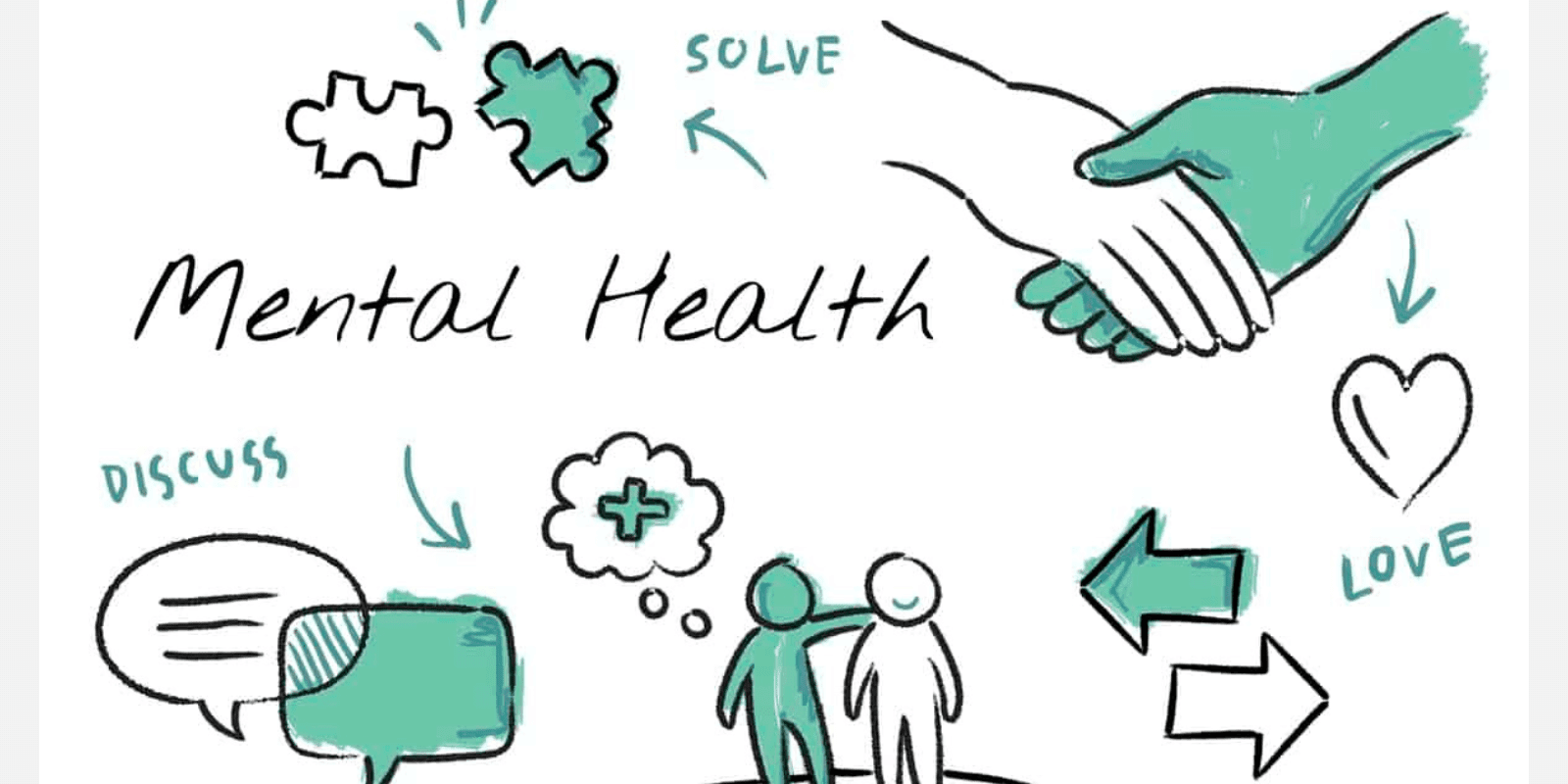
What Are The Stages Of Relapse?
Relapse occurs in three stages: emotional, mental, and physical.
When you are aware of the different stages of relapse, you can get out ahead of a full-blown relapse. You might be able to catch your relapse in the early stages.
What Is An Emotional Relapse?
An emotional relapse occurs when you are not even thinking about using alcohol or substances but are also not taking care of your emotional health.
During this stage, you are not using, and you are maintaining your sobriety. You are following the rules of recovery, but only on the surface. You might be “going through the motions.”
In this stage, you continue to follow your recovery plan. You are attending alcoholics anonymous and other 12-step meetings regularly. You stay away from drugs and alcohol and avoid triggering situations.
But you aren’t speaking during meetings. You aren’t talking about what is really going on in your life. You are closed up or in denial of any emotional issues.
During the emotional stage of relapse, you might be:
- Focusing on other people’s problems, but not your own
- Bottling up your emotions
- Not doing basic self-care activities, like proper sleep, healthy eating, or regular exercise
- Skipping meetings or not sharing if you do go
If you notice these behaviors, reach out for help. You can get back on track more easily during this stage of relapse.
Maybe a family member loved one, or other people in your support network address a concern to you. Remember that they might notice things that you are not aware of yet.

What Is A Mental Relapse?
A mental relapse is when you start thinking about using or going back to your addictive behaviors.
You start thinking about using drugs or alcohol. You might even bargain with yourself in your own head: I’ve been good; I can have just one drink. During a mental relapse, you start to have a war within yourself.
Some of the following signs might mean you are in the mental stage of relapse:
- Cravings and urges for drugs or alcohol
- Changing your thinking about the negative effects of your drug or alcohol addiction:
- It wasn’t so bad
- I really had a lot of fun, and I miss that
- Nothing too bad happened; everyone else overreacted and made me change
- Glorifying past experiences with alcohol or substance abuse
- Thinking about places and people associated with your alcohol or substance abuse
- Lying to others about skipping 12-step meetings or about not following other rules of recovery
- Planning how you can drink or use drugs without getting caught
- Looking for an excuse to use again
You cannot win this battle without reaching out for help. You cannot deny the power of cravings and urges. If you keep these thoughts to yourself, you are in danger of physical relapse.

What Is A Physical Relapse?
Physical relapse is when you begin using substances or alcohol again.
The physical stage of relapse is what you might have always defined as a relapse. You might define this as a “true” relapse. But, if you understand that relapse can occur in earlier stages before actually drinking or using, you can prevent a physical relapse.
A physical relapse can be a brief “slip.” You might be at a party, and you have a drink to celebrate.
While just one drink might not seem like a big deal, this can lead to thinking, “I can handle just one.” Then, you find yourself drinking again, but slowly and in control. You might think, “It’s different this time.”
But, as time goes on, you find yourself back to where you were before you started addiction recovery in the first place.
Remember that after a physical relapse, recovery is not hopeless. You might just need additional coping skills for long-term sobriety. You can learn from your mistakes and get back on the right path.
How To Detox After A Relapse
Detox after a relapse can be easier than your first detox because now you know what to expect.
But, if you had a painful experience detoxing the first time, you might avoid addiction treatment for your relapse.
Withdrawal symptoms from substance or alcohol abuse can vary. Your detox after relapse depends on how long your relapse has occurred and how much you used.
Now, you have experience with detox and treatment. You might remember some things that were helpful the first time. Or, you might have ideas about what could have made the process easier.
Talk to your primary healthcare provider about the best way to detox after a relapse.
Your doctor might make a referral to a detox center. If you have gone to an addiction treatment provider in the past, they might have suggestions and options for alumni of their treatment program.
Detox alone at home is never recommended for those diagnosed with alcohol or substance use disorders.
It would be best to look into detox at an inpatient treatment center for additional support and medical help. Medical staff and other support people can help you deal with the physical and mental withdrawal symptoms.
Withdrawal after relapse can be unpleasant to think about. You might have bad memories of how hard detox was. You might remember how painful your withdrawal symptoms felt.
Remember that you have been through this before and can get through it again.
Now that you have been in addiction recovery, you likely have a strong support network to help you through. When you first began addiction treatment, you might have had no coping skills and very little support.
Following a relapse, you most likely have a support system, self-help skills, and experience that can help you get back on track quickly.
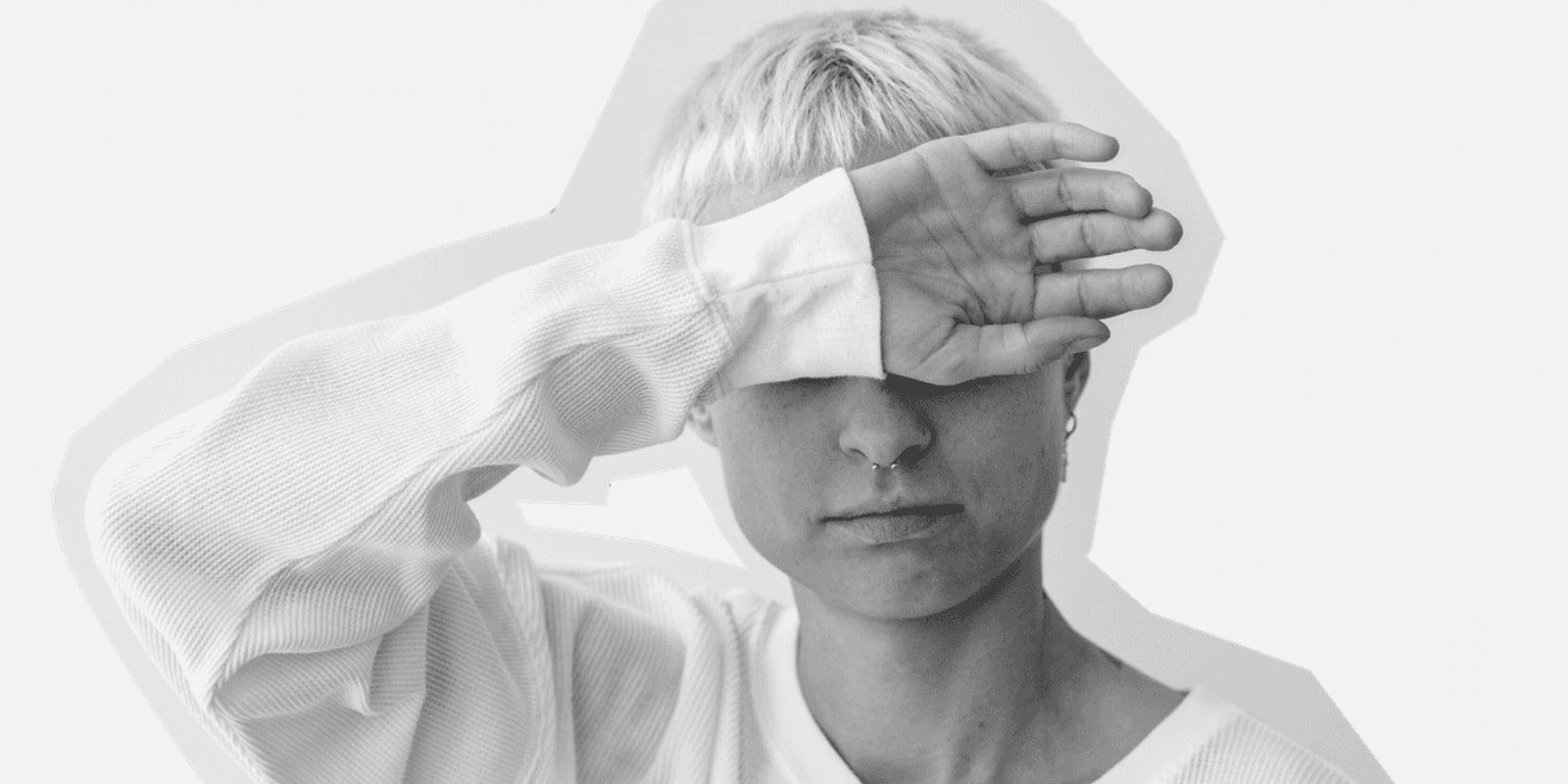
What Is The Addiction Recovery Process Like After A Relapse?
The addiction recovery process after a relapse might be easier than early recovery.
After a relapse, you know what works and what does not work in recovery. You have experience in addiction treatment. Now, you have a better sense of your triggers, know who you can go to, and what you can do.
Unlike your first stay at a treatment center, now you know how to get on the right track. You also know that you can get on the right path.
You’ve done this before, and you will get through it again.
Overcoming substance and alcohol use disorder is difficult. You might have been sober after treatment for three months before a relapse. Or maybe you have been sober for years before relapsing.
No matter what, you’ve proven that you can do this. Relapse is a setback and a learning experience to get better through your addiction recovery process.
During your first stay at a treatment center, you might not have thought about future relapses. You might have been focused on just getting sober and getting out of treatment. After relapsing, you can create a more effective relapse prevention plan.
Look back on what caused your relapse. Could you have prevented a physical relapse by paying attention to your emotional and mental health? Did you find yourself going back to triggering people and places after feeling “cured” of your addiction?
Relapse is an opportunity to come back better and stronger than before.

What Is Relapse Prevention?
Relapse prevention means looking at your recovery plan as a way of preventing future relapses.
You might consider addiction treatment as a way of learning relapse prevention. After all, you are trying to learn healthy ways of living without alcohol or drug use during treatment.
You and your family members can work on relapse prevention during your treatment by focusing on your discharge planning while you are in a treatment center.
According to the Partnership to End Addiction, effective discharge plans include the following:
- Continuing outpatient therapy services
- Treatment for underlying mental health issues, including psychiatric care and medication
- Involving family members in your support system and treatment planning
- Getting into a social support group, such as:
- 12-Step Meetings, like Narcotics or Alcoholics Anonymous
- SMART Recovery
- Support groups for other addictive behaviors, like video games or gambling
- Creating structure and accountability:
- How will you and your loved ones hold you accountable for your recovery?
- How often will you attend therapy, support group meetings, and other activities to keep you on the right path?
- Planning for a future relapse:
- What are your warning signs of alcohol or drug abuse?
- What should your family members do if you deny treatment while under the influence?
- Who is in your support network that you can count on if you do relapse?
- What are your preferred treatment options in the event of relapse?
- Create a safe and supportive home environment to reduce the chances of relapse
Don’t wait to create a relapse prevention plan. You might be in denial of the possibility of a future relapse. Addiction, like all chronic diseases, carries the risk of relapse.
According to the National Institute on Drug Abuse (NIDA), relapse rates for substance use disorders are 40-60%.
While this might seem high or make you think that treatment doesn’t work, this rate is actually low compared to other chronic diseases.
By taking proactive steps and understanding the stages of relapse, you and your loved ones can prevent a relapse from occurring or becoming dangerous.
Relapse is not a sign of failure. Instead, you can learn what to do better as you continue your addiction recovery. Sandstone Care is here to treat young adults and teens with substance use disorders and co-occurring mental health issues. Call us today at (888) 850-1890.

